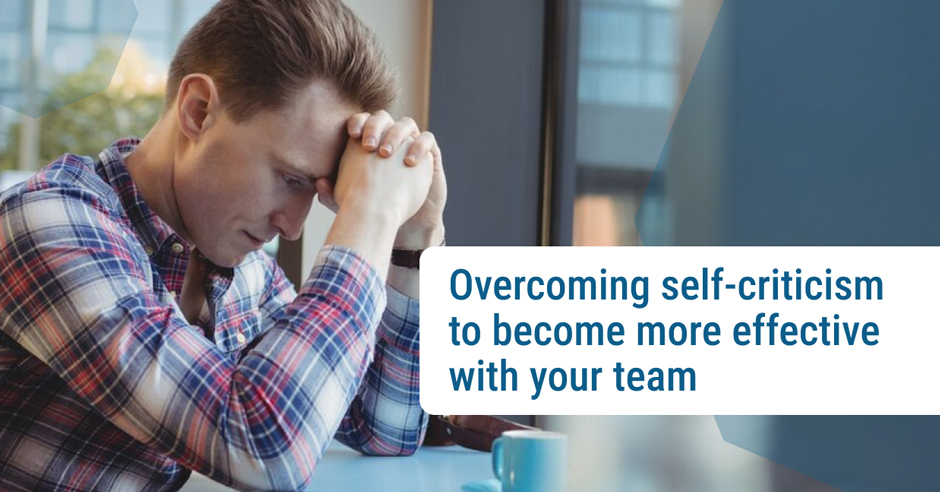Many project managers and engineers I have worked with communicate that one of the most significant challenges they face is being overwhelmed with self-criticism and self-blame. When it comes to the individual, one project manager might tell me that he is so focused on a task that he neglects to take care of other tasks, while another speaks of being scattered and not being focused enough on one. In either case, the feeling of guilt or shame lingers on. Although many of them take responsibility for their actions, they can’t seem to get past the self-blame, shame and self-criticism. In this article, I reveal why acknowledging and owning our mistakes and failures, coupled with forgiveness and commitment, enables us to move beyond being stuck in a state of shame, blame and guilt to become empowered and, therefore, more effective.
Are you stuck in blame and shame?
Have you ever spent hours, days, weeks or even months rethinking a project you led that ultimately failed? If so, you’re not alone. Many project managers and team leaders spend far too much time recycling thoughts about the time when things went awry and feelings of regret over something that happened in the past. This type of rumination does nothing to help them get past a lack of effectiveness. All it does is consume time, energy, and wellbeing and prevent them from being empowered to focus on future possibilities and positive change.
Speculations of this nature typically occur when people accept responsibility for something that has gone wrong, whether or not it was their fault, but don’t follow up with forgiveness and compassion. Lack of forgiveness may minimise empowerment towards a commitment to avoid or minimise similar mistakes in the future.
For example, let’s say a project manager has mismanaged a team member and caused a communication breakdown that led to the team member making a mistake due to inaccurate instructions. This could lead to project failure. There are generally two scenarios that could occur in this situation:
- Blaming the other person (or outside forces) and not taking responsibility, or
- Blaming oneself and taking responsibility.
The former can lead to resentment, anger and defensiveness from the other party, the latter to shame and guilt. Being stuck in blame and shame can cause us to close down and shut off from the rest of the team, depriving us of the opportunity to take proactive, positive action. There is, however, a more effective strategy to move forward.
Acknowledge failure, then forgive and focus on solutions
We already know that being stuck in shame and blame is disempowering. For starters, recognise these emotions as merely indicating what is important to you personally, then rise above them towards empowerment and positive change. It’s important not to ignore these negative feelings and give them space to be while also rising above them. It may seem contradictory, but acknowledging and not resisting shame, guilt, and other negative thoughts and feelings is critical. Those emotions are telling you what is important to you.
The next step is forgiveness – particularly self-forgiveness – for a mistake made in the past. Most people resist forgiveness as they may feel they are being too soft on themselves. They believe non-forgiveness serves as a way of ‘self-punishment’ to discourage repeating the mistake. However, non-forgiveness is counterproductive as it results in lingering feelings of guilt and shame, which commonly lead to self-criticism and decreased effectiveness in tackling the real issue. Dr. Richard Davidson, the founder and director of the Center for Healthy Minds at the University of Wisconsin-Madison, says, “Self-criticism can take a toll on our minds and bodies…It can lead to ruminative thoughts that interfere with our productivity, and it can impact our bodies by stimulating inflammatory mechanisms that lead to chronic illness and accelerate aging.”
When we couple responsibility with forgiveness – including self-forgiveness – and self-compassion, we move towards solutions that minimise or eliminate future mistakes while fostering personal health and wellbeing. In the case of the project manager, they would exercise self-forgiveness and self-compassion. They would then take action to improve the current situation – such as asking for forgiveness from the other party – and mitigate the risk of it happening again. For instance, they might implement a communication strategy to ensure clear and verified instructions before taking action on any future project.
The steps towards effectively becoming aware, acknowledging mistakes and moving towards effective action can be summarised in three points:
- Accept and acknowledge mistakes rather than making excuses or denying your part in them.
- Forgive mistakes and failures, yours and others.
- Commit to processes and steps to avoid or minimise future mistakes and failures.
We become more effective when we acknowledge our mistakes, take responsibility for them and their consequences, forgive ourselves and others and commit to implementing risk mitigation strategies to prevent them from happening again. Next time you make a mistake, instead of getting stuck in blame and shame, I encourage you to acknowledge and own it fully, then forgive yourself for it. Finally, feel empowered to develop strategies to minimise and avoid making the same mistake again. Repeat this cycle indefinitely for greater effectiveness across all team projects.
